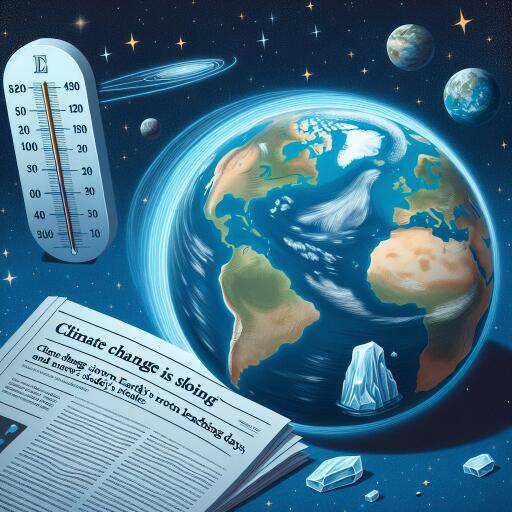
Climate Change Is Slowing Down Earth’s Rotation Speed And Lengthening Days; New Study Reveals
In recent findings published in the Proceedings of the National Academy of Sciences, a groundbreaking study unveils a significant consequence of climate change: the deceleration of Earth’s rotation, resulting in longer days. At the forefront of this research is a team from ETH Zurich, who have discovered that the melting of polar ice caps is playing a pivotal role in this planetary change.
As the climate crisis prompts the ice in Greenland and Antarctica to melt, vast amounts of water are being redistributed across the globe. This transfer of mass from the poles to the equatorial regions is causing an increase in the Earth’s physical inertia. Analogous to a figure skater who extends their arms to slow down their spin, Earth, too, experiences a slow down in its rotation.
This subtle yet profound shift has the potential to interfere with various aspects of our daily lives and the technological infrastructure that supports them. Among the anticipated impacts are challenges in global time-keeping systems, which could affect everything from digital infrastructure to the accuracy of GPS systems. Furthermore, the implications extend to outer space, with potential challenges for space travel emerging from these changes.
The study sheds light on how interconnected our planet’s systems are and underscores the far-reaching implications of climate change. While the immediate effects might seem marginal, the long-term consequences of a slowing Earth could have profound implications for both our natural world and the technology that we depend on.





Leave a Reply